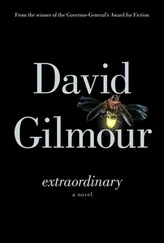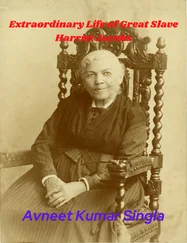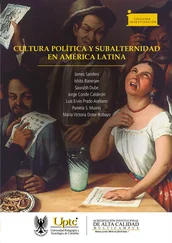Andrew Ervin
Extraordinary Renditions
Special thanks to my parents and to the entire Ervin, Pierrou, and Varga families; Chris Abani, Setareh Atabeigi, Christian Bauman, Madison Smartt Bell, Jane Bennett, Derek Chafin, Clay Cook, Ricardo Cortez Cruz, Julia Glass, Michael Harrison, Troy Hendricks, Tayari Jones, Laurie Kaplan, Tamás Kovács, Nikki Larsen, Noah Larsen, J. Robert Lennon, Bayo Ojikutu, Stewart O’Nan, Steph Opitz, Audrey Petty, Richard Powers, Alice Randall, Tim Reeder, Kevin Richards, Amy Sayre-Roberts, Jodee Stanley, Charles Sullivan, William T. Vollmann, and Curtis White; Chris Fischbach, Anitra Budd, Molly Mikolowski, Esther Porter, and everyone at Coffee House Press; Ira Silverberg at Sterling Lord Literistic; MIT Press for permission to quote from Anna Bostock’s translation of The Theory of the Novel, by György Lukács; and Tariq “Black Thought” Trotter of the Roots for permission to quote from “I Will Not Apologize.” Excerpts from this book appeared in Conjunctions and The Southern Review.
This is a work of fiction. Names, characters, places, and incidents are products of the author’s overactive imagination or are used fictitiously. Any resemblance to actual persons, living or dead, business establishments, events, or locales is entirely coincidental and possibly somewhat unfortunate.
I recall a conversation with Frau Marianne Weber in the late autumn of 1914. She wanted to challenge my attitude by telling me of individual, concrete acts of heroism. My only reply was: “The better the worse!” When I tried at this time to put my emotional attitude into conscious terms, I arrived at more or less the following formulation: the Central Powers would probably defeat Russia; this might lead to the downfall of Tsarism; I had no objection to that. There was also some probability that the West would defeat Germany; if this led to the downfall of the Hohenzollerns and the Hapsburgs, I was once again in favour. But then the question arose: who was to save us from Western civilisation?
— GYÖRGY LUKÁCS, PREFACE TO The Theory of the Novel (1962)
1.
The cab ride from the airport was more exhausting than the transoceanic flight. Budapest had grown unrecognizable, and filthy. Everything had changed. Only the weather was familiar now — the dry cold and the wind that rushed down along the river, sustained by clogged and muddy streets. Harkályi felt grateful for the generic familiarity of the hotel room, the bland tones of the wallpaper. With the curtains drawn, he remained placeless a while longer, a measure closer to anonymity, yet something was different this time. They called him Hungarian, but that was a designation he never felt. Perhaps he should not have come.
The last time Harkályi had been in Hungary was when, four decades earlier, he received word of the failing health of Zoltán Kodály, his old friend and mentor. They had spoken in pidgin Hungarian of history and progress, of the varieties of immortality. “This wax,” Kodály admonished him, holding aloft the sleeve containing a newly pressed edition of his Székely fonó, “is nothing less than a gravestone for my music.”
There is eternal life, Kodály had said, not afforded by so many of these sonically miraculous recordings, but bestowed upon a teacher by his most loyal student.
Harkályi had since grown old. His face in the washroom mirror had become significantly looser since his last visit. His hair was once brown, his eyesight as perfect as his precisely tuned inner ear. He had come here again, ostensibly, to witness the premiere of his opera The Golden Lotus. There were other reasons, reasons he did not yet dwell upon.
Sitting on the edge of the bed, he unlaced his shoes and waited for his luggage to be brought up. He removed five thousand forints for a gratuity from his billfold and put it on the bedside table. The telephone receiver was heavy, leaden. The light on the base flashed at him until he pressed a series of buttons. The first message, in broken English, came from an orchestra representative: they will send a car to the hotel tomorrow in the early afternoon, and then ferry him to the concert over in Buda, where he will meet the prime minister. “Szank you,” the voice concluded, “and velcome home.”
After the performance, the prime minister will personally bestow upon Harkályi a medal in recognition of his contribution to the artistic legacy of the nation and service to the Hungarian people. Tomorrow’s event will represent the final public engagement of his career, his crowning achievement. Afterwards, he will return to his university residency in Philadelphia and remove himself, once again, from public view, taking on only a precious few students of significant artistic promise. He was ready to stop moving, finally, to stop becoming.
Since the death of Kodály, even newer and seemingly more miraculous recording technologies had emerged, hissing and popping from the primordial carbon ooze, only to find themselves soon surpassed in aural verisimilitude and returned to oblivion, extinct. Digital reproduction promised nothing less than an end to entropic degradation. Millions of people had by now bought compact discs containing a rendition of Harkályi’s Symphony No. 4 as arranged for a unique and all-but-infinite string of 1s and 0s. His was the first small-C classical recording to alchemize from plastic to gold, and then from gold to platinum, and to depose a savvily angry hip-hop performer, however briefly, from atop the pop-music charts: millions of plastic mirrors, simulacra of simulacra extending so far that the original, an outdoor performance in Jerusalem a decade ago, could no longer be heard.
Even those compact discs were nearly obsolete now — just as Kodály had predicted. Fraunhofer-Gesellschaft’s inventive Moving Picture Expert Group Audio Layer III technology offered Harkályi’s music the portable convenience of unimaginable compression, of innumerable notes and rests packed together, traveling shoulder to shoulder through the ether and into the headphones of young people who consumed it the way they consumed meat, incognizant of the slaughter it entailed. Easy, infinite reproduction made him a millionaire, a real millionaire, but at the risk of thoughtless and carefree disposability.
The second message was from his niece, Magda, who will accompany him to the concert. He hadn’t seen her in nearly two years, since she finished her graduate studies at Yale and accepted a position as an interpreter with a consulting firm based in Washington, DC. Presently working at a military base in southern Hungary, among other places, much of what she did was classified even from him. He will meet her in the hotel’s famous pastry shop at eleven in the morning. As his only remaining blood relative, Magda was the sole heir to the inexplicably enormous fortune his recordings had earned him, though a number of charitable institutions also stood to benefit from what he imagined to be a pending and not entirely unwelcome demise. It will be lovely to see her, a warm relief from the strain and headache of travel and public appearance, the weight of long-deferred nostalgia. He replaced the phone on its cradle and the red light died out at once.
He remained seated on the bed, holding back the memories he resisted all of these years and had some reason to fear. He surrendered and accepted the standing invitation of the Hungarian government. It was time to address the dybbuks he had avoided for so long; so he returned to the Hungarian soil to seek forgiveness, as he had once sought Kodály’s. He came seeking silence. The wrinkled, spotty hands covering his face became damp.
Читать дальше












